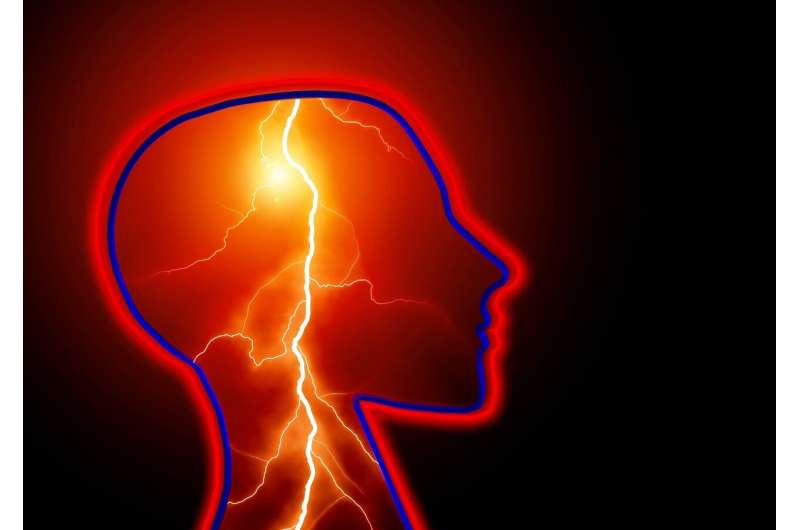Immune response the probable underlying cause of neural damage in COVID-19

It is probably the immune response to, rather than the virus in itself, that causes sudden confusion and other symptoms from the nervous system in some patients with COVID-19. This is shown by a study of cases involving six Swedish patients, now published in the journal Neurology.
With accumulated experience of the disease, it has become evident that symptoms and signs from the nervous system is common in patients suffering from COVID-19.
Symptoms reported in the acute phase of the disease have included, for example, delirium, personality changes, and memory problems, all of which are signs of brain impairment or failure. These signs occur more frequently in more severe cases, and are usually temporary.
To date, it remains unclear whether SARS-CoV-2, the virus causing COVID-19, has the capacity to infect the brain and central nervous system directly. The current study from the University of Gothenburg indicates that, more likely, the patient's immune response is what may underlie the effects on the nervous system.
Massive immune-cell activation
In the study, cerebrospinal fluid (CSF) samples were taken from six hospitalized patients at Sahlgrenska University Hospital in Gothenburg with moderate or severe COVID-19 and signs of brain impairment. The samples were analyzed for biomarkers that reflect how the brain is reacting to infections.
Every patient exhibited markedly elevated levels of the inflammation (immune activation) markers neopterin and beta-2-microglobulin, suggesting substantial activation of the brain's immune cells. In two cases, an increase in the protein neurofilament light (NfL), a marker that is sensitive to nerve-cell damage, was also seen.
On the other hand, no impact was observed on markers for damage to the blood–brain barrier, local antibody production or a raised white blood-cell count, which are otherwise common in virus infections in the central nervous system.
As for proof of actual SARS-CoV-2 invasion, the results from the analysis were uncertain, but most indications are that no virus was present in the cerebrospinal fluid, at least not to any significant degree.
No demonstrable virus
Magnus Gisslén, Professor of Infectious Diseases at Sahlgrenska Academy, University of Gothenburg, and Chief Physician at the Department of Infectious Diseases, Sahlgrenska University Hospital, heads the Academy's clinical research on COVID-19.
"Overall, we see an unusual picture with marked inflammation and sometimes nerve-cell injury, but without a recruitment of immune-system cells from the bloodstream, detectable virus or damage to the blood–brain barrier, which are usually found in viral infections in the brain," he says.
The researchers emphasize that the mechanisms behind the symptoms seem to diverge from those of other viral infections. The first author of the study is Arvid Edén, Ph.D. in Infectious Diseases at Sahlgrenska Academy, University of Gothenburg, and senior consultant at the Department of Infectious Diseases, Sahlgrenska University Hospital.
"It's an urgent priority for us to learn more about how COVID-19 affects the nervous system, not least so that we can determine which types of treatment may be suitable to counteract or mitigate the effects of infection with SARS-CoV-2 on the brain, both in the acute phase and in the longer term," Edén says.
More information: Arvid Edén et al. CSF biomarkers in patients with COVID-19 and neurological symptoms, Neurology (2020). DOI: 10.1212/WNL.0000000000010977



















